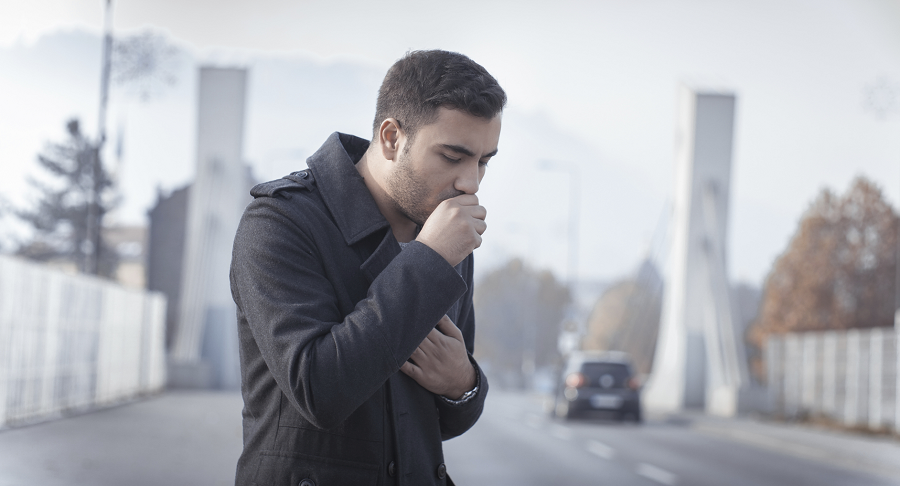The 6 Common Causes of a Summer Cough

Heat exhaustion, sunburn, and insect bites are the top health issues you often deal with during summer.
Spending several hours outdoors while temperatures are extremely high can cause you to suffer from heat exhaustion and even heat stroke. If you don’t apply sunscreen and stay under the sun for long periods, you will likely get a painful sunburn.
Mosquitoes, ticks, and other bugs are more active during summer, too. As such, you are more likely to get bitten by these insects whether you are outdoors or inside your home.
But there is another sickness that you may acquire during summer that you may never think of getting: a cough.
A summer cough is another classification of cough that is sometimes considered seasonal. This is because certain conditions present during the warm season can trigger this illness.
What Causes a Summer Cough?
Below are the six usual causes of a summer cough:
1. Humidity
The warm weather conditions bring about heat and humidity that make it harder for some people to breathe. If you have asthma, allergies, or chronic obstructive pulmonary disease or COPD, this is a condition that you will suffer from during summer.
Humidity, in particular, can trigger asthma. If you don’t deal with this health issue, you can develop a cough.
Additionally, it is not only the humidity that can lead to coughing. The warmer condition facilitates the arrival and breeding of certain allergens, such as dust mites. They can also trigger one of the usual symptoms of allergy, which is coughing.
2. Summer cold and other types of respiratory infection
Like coughs, colds, flu, and other respiratory infections can also make an appearance during the summer. They can also be the culprit behind your sudden hacking and itchy throat.
The enterovirus is the usual cause of summer colds. The symptoms of the illness triggered by this virus often last longer than the ones that come with the rhinovirus, the bug responsible for the winter colds.
Because of this, you can still have a cough even after your sniffles and other symptoms are gone.
Additionally, you can get a dry cough after a cold. This is because this ailment can leave your throat irritated and inflamed. This irritation can trigger a dry, tickly cough.
During summer, the irritation and inflammation in your throat can be further aggravated by the dry air and use of air conditioning.
3. Exposure to air conditioning
Due to the warm weather, it is highly likely that you will use the air conditioner more often at home. Moreover, you will also be frequently exposed to the cool air blasting in your office, car, the mall, and other places that have AC systems.
Although the cool air from the AC allows you to feel more comfortable and refreshed amidst the scorching heat, you have to know that this system can cause drying of the skin and eyes.
It can also be the reason behind your throat suddenly drying out, which can lead to a dry cough.
4. Hay fever
Allergic rhinitis or hay fever is the most common cause of dry summer cough.
Pollen from trees, grass, and weeds do not only fly around the air during spring; they already start floating in the summer. These allergens are the leading cause of hay fever.
The usual symptoms of hay fever include itchy, irritated, and red eyes, congestion, sneezing, and a dry, tickly throat.
The dryness and irritation at the back of the throat caused by hay fever can lead to a dry cough.
This ailment can also be triggered when you breathe through your mouth due to nasal congestion. Doing this frequently can lead to dryness at the back of your throat and, eventually, a cough.
5. Allergies
Aside from hay fever, other types of allergies can also trigger a summer cough. If you are allergic to molds, dust, dust mites, animal dander, smoke, and air pollution and you are frequently exposed to them, you can easily develop a cough in any season.
It is important, therefore, to take note of your allergies and try to minimize exposure to them to avoid developing a cough.
6. Acid reflux
Lastly, even if you do not have allergies, a cold, and other respiratory issues, you can develop a cough in the summer if you have acid reflux.
Acid reflux is another common cause of dry cough. When the acidic contents of the stomach go back to the esophagus, it can result in heartburn.
This irritation can also trigger the coughing reflex. If you don’t address this particular health problem, you will have frequent coughs throughout the year.
How Can You Avoid and Treat a Summer Cough?
If you don’t want to spend your summer hacking and clearing your throat, follow these tips for avoiding coughing and treating it when you have it:
- Follow a healthy lifestyle to boost your immune system and keep it in tip-top shape. This will help you avoid getting sick easily and experiencing secondary infections.
- Consume more fresh lemons. Lemons help prevent a cough from turning into a more severe illness since it is a rich source of vitamin C, which enhances the immune defenses.
- Add pineapple to your daily diet. Pineapples can cure coughs of allergies and similar respiratory issues like asthma. It also contains bromelain, which acts as a decongestant that expels mucus. This fruit also has a natural antihistamine that can help treat allergic reactions.
- If you think exposure to air conditioning is the cause of your dry cough, try minimizing the use of this equipment. If your home is not a hotspot for pollen, open the windows instead. Consider getting a humidifier as well to get additional moisture in rooms you frequent.
- Gargle with warm saltwater. This mixture works both as a treatment and preventive solution. It is a natural disinfectant that helps soothe your inflamed throat and relieve coughs. Additionally, it loosens thick mucus that can hold irritants in the throat.
- Avoid allergens. If you know that you are allergic to pollen, do not go out when the pollen count in your area is high. If pet dander and molds are your triggers, don’t go near your furry pals and always keep your home clean.
As a final tip, always keep a stock of cough medicine. A 24-hour cough medicine will give you relief from the annoying symptoms of this ailment for the whole day.
Consult your doctor as well since you may need to adapt your cough medication according to the temperature.




